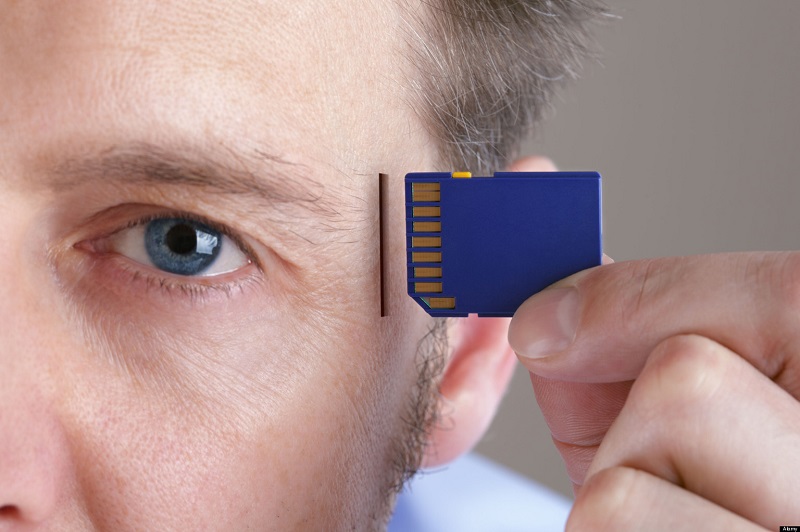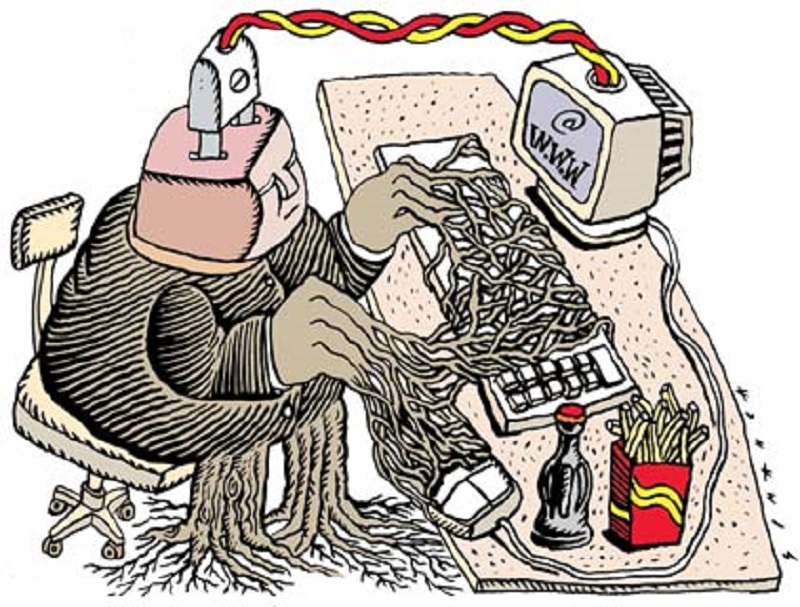Google Is Replacing Your Memory

Source: The Huffington Post
When you learn something, you don’t burn the information into your brain like a hard drive, but rather map the neural pathway of sensory, motor, and abstract activity occurring at that moment. Thus, in recalling a memory you are actually reliving an identical brain state as when it was encoded, while at the same time adding new details from the present.
And when you don’t recall a memory very often, your brain slowly scrubs off the older, more inane details as if de-fragging the whole system. This is a good thing, called transience, that the brain does anyway, allowing for more space to store information.
But when that process invariably starts with “Google it,” it presents a problem when trying recall information found through the search engine. For one, the brain likes to conserve energy, and it’s much more likely to remember the spoils of a whole day in the library archives than an answer provided provided after mere seconds while procrastinating.
The even stranger extrapolation of this is that the brain doesn’t remember facts so much as it remembers where to find them. So as long as you never have to worry about Google being unavailable, you never have to dedicate brain space to remembering anything Google can tell you.
The Negative Impacts Of The Internet: It Encourages Addiction To Itself

Source: Blogspot
As the internet continues to act as your de facto brain, it becomes increasingly important for you to have handy at all times, which makes you use it more to compensate for your atrophied brain matter, which makes you use your brain less, thus requiring you to rely on the internet even more.
It’s not an exaggeration, either: as well as being totally depressed, heavy users have shown shrunken sections of white matter in multiple sections of the brain.
For their part, social media sites are setting the standard for digital nicotine, employing all the bells and whistles to keep users coming back. Video game fans will be well aware of the thrill of leveling up: The screen flashes, the music plays, and the numbers go up; it’s all very gratifying. And it makes you want to do it again and again, until…you don’t even know what, but you’ll do everything in your power to feel this way once more.
If this sounds familiar to something you’ve been warned about, it should; this is basically what happens when you get addicted to drugs.
It’s Totally Integrated Into Society

Source: Hemanthology
Even if you wanted to get away from the Internet, whether from your very real fears of NSA surveillance or your desire to stop hemorrhaging brain cells, it’s all but impossible now. As stated above, just about everyone has a smartphone as well as Internet at work and home.
More and more, manufacturers and media are switching to digital means of delivery, making Internet a prerequisite for a certain standard of living and rendering any remaining devices like VCRs or boom boxes simply anachronistic.
Don’t go panicking just yet, though. You probably aren’t addicted to the internet, and you can take this test if you’re really worried about it. The potential for new technology to be dangerous will always be present, but that doesn’t mean it’s impossible to indulge in vices responsibly. Like anything that can become too much very quickly, the key word is moderation.





